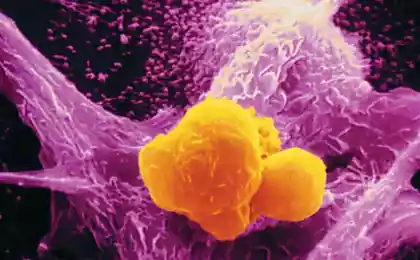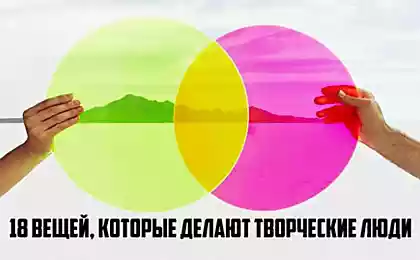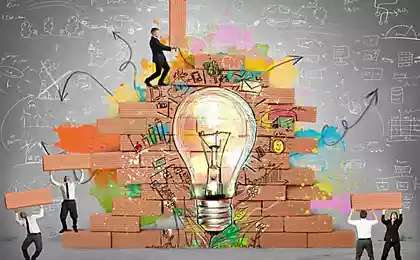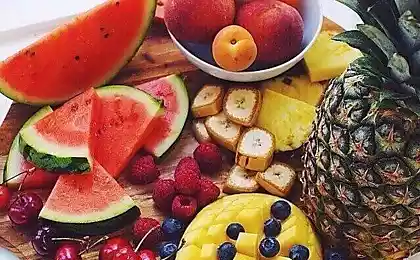440
Fred Kaufman: How food stopped being food
Informatization and virtualization is a powerful tool to improve the real world. When we turn to material things, from aircraft to genes in the numbers, we can analyze and manage them more efficiently. But two recent reports suggest that virtualization can also be harmful effects, especially when it comes to food.
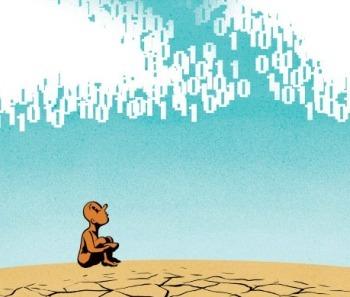
Informatization and virtualization is a powerful tool to improve the real world. When we turn to material things, from aircraft to genes in the numbers, we can analyze and manage them more efficiently. But two recent reports suggest that virtualization can also be harmful effects, especially when it comes to food.
Fred Kaufman begins his new book Bet the Farm: How Food Stopped Being Food (How food stopped being food), which describes the paradox of modern food production. In 2008, farmers produced more grain than ever, and this amount of food was enough to feed twice as many people than those who lived at that time on our planet.In the same year, for the first time in history, more than a billion people were starving. ” We could produce more food and at the same time, so many people are malnourished? The answer gives Kaufman in his book. He argues that food became virtualized, or in other words financialservices. Instead of using systematic data to find reasonable ways to distribute real food, we are more and more used them to manipulate real food as a speculative object, which is used in the role of a complex financial product, to increase money bubble. The result: the Price space rocket that makes real food is useless, and people are starving.
Create virtual requirements are particularly dangerous at the moment, because the real needs are still growing, and — as reported last fall in the journal Nature investment strategist Jeremy Grantham farmers are struggling to maintain it at a high level. “Increased productivity of grains has fallen to 1.2 percent per year,” according to Grantham, “which is exactly equal to the global rate of population growth. And now there's no margin of safety. ”
Kaufman tells how humanity can solve the issue. It is not difficult, he said. All we have to do is to apply the technology of commodity markets and carry out effective coordination, not competition. The United Nations has already pointed us in the right direction. The UN recently introduced Agricultural Information system Market (AMIS), which contains the most useful information about the global market — How many now have food? How much did we eat last year? How many simply disappeared? We operate a surplus or deficit? — no useless speculation. “Commodity markets are extraordinary technological breakthrough pricing and management,” said Kaufman. “The market struggle, as always, should support technologies in accordance with human needs.” published
P. S. And remember, only by changing their consumption — together we change the world! ©
Source: mirnt.ru/science/pochemu-chelovechestvo-golodaet

Informatization and virtualization is a powerful tool to improve the real world. When we turn to material things, from aircraft to genes in the numbers, we can analyze and manage them more efficiently. But two recent reports suggest that virtualization can also be harmful effects, especially when it comes to food.
Fred Kaufman begins his new book Bet the Farm: How Food Stopped Being Food (How food stopped being food), which describes the paradox of modern food production. In 2008, farmers produced more grain than ever, and this amount of food was enough to feed twice as many people than those who lived at that time on our planet.In the same year, for the first time in history, more than a billion people were starving. ” We could produce more food and at the same time, so many people are malnourished? The answer gives Kaufman in his book. He argues that food became virtualized, or in other words financialservices. Instead of using systematic data to find reasonable ways to distribute real food, we are more and more used them to manipulate real food as a speculative object, which is used in the role of a complex financial product, to increase money bubble. The result: the Price space rocket that makes real food is useless, and people are starving.
Create virtual requirements are particularly dangerous at the moment, because the real needs are still growing, and — as reported last fall in the journal Nature investment strategist Jeremy Grantham farmers are struggling to maintain it at a high level. “Increased productivity of grains has fallen to 1.2 percent per year,” according to Grantham, “which is exactly equal to the global rate of population growth. And now there's no margin of safety. ”
Kaufman tells how humanity can solve the issue. It is not difficult, he said. All we have to do is to apply the technology of commodity markets and carry out effective coordination, not competition. The United Nations has already pointed us in the right direction. The UN recently introduced Agricultural Information system Market (AMIS), which contains the most useful information about the global market — How many now have food? How much did we eat last year? How many simply disappeared? We operate a surplus or deficit? — no useless speculation. “Commodity markets are extraordinary technological breakthrough pricing and management,” said Kaufman. “The market struggle, as always, should support technologies in accordance with human needs.” published
P. S. And remember, only by changing their consumption — together we change the world! ©
Source: mirnt.ru/science/pochemu-chelovechestvo-golodaet




